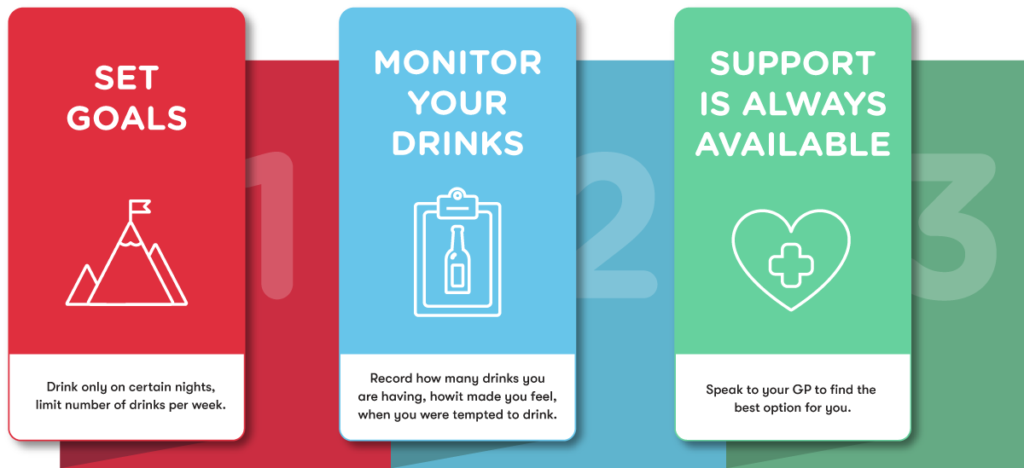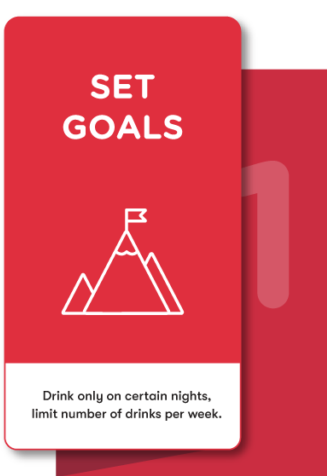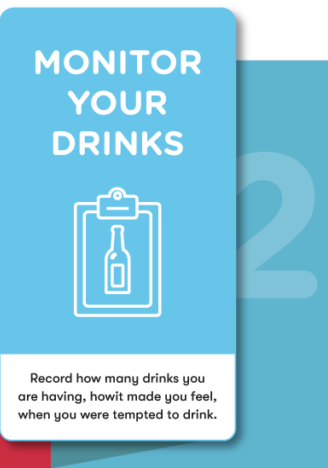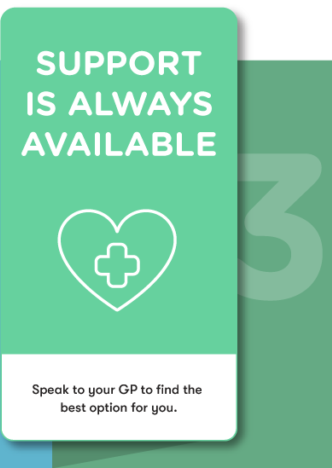
Once you have decided to reduce your drinking, put pen to paper – or fingers to the keyboard. When changing your behaviour, it helps to have something to aim toward. Planning what you are going to do, setting goals and having some support will make things easier.
At any stage of planning to change or changing your drinking patterns your health professional can provide assistance. They can check your health, discuss your options, help you set goals, and provide support and referrals.
It is important to note that there is no amount of alcohol that can be considered safe. Alcohol affects people differently depending on things such as age, general health and genetics.
1. Set goals

The first decision to make is to decide how you want to change your drinking patterns. Do you want to cut back, gradually reduce the amount until you have quit, or quit drinking immediately?
Once you decide this, you can set some short and long-term goals.
These goals need to be realistic and will depend on your overall aim.
If you set goals that are too high and don’t reach them you may feel disappointed and feel like giving up.
For example, if your overall goal is to reduce your drinking some short-term goals for the week might include:
• Not having a drink when watching TV during the week.
• Setting a minimum number of alcohol-free days you will have.
• Setting a maximum number of standard drinks you will have per day.
Write down your goals and the dates by which you wish to achieve them.
If you reach your goals, you can set new ones. If you don’t reach them, have a look at what went wrong and try again. You might find it helpful to discuss your goals and whether you achieved them with a support person or health professional.
2. Monitor your drinking

Long before we shared our lives with the world through social media, people curled up with a diary to record what really mattered to them. Now is a great time to start a healthy new habit.
The ADF’s alcohol diary is a strategic tool that enables you to record your journey – how many drinks you’re consuming per week, moments when you were tempted to drink and how it made you feel.
This diary will help give you a record of what, when and why you are drinking. You can compare your progress with previous weeks and keep track of your achievements:
- Fill in days when you have had nothing to drink.
- Note the times when the urge to drink was strong but you didn’t drink.
- Note down how you coped with difficult situations.
- Add up the money you have spent on alcohol.
You have given yourself the best chance of succeeding by taking time to think about your drinking and what steps you are going to take to give COVID-19 drinking habits the flick
3. Support is always available

It’s important that you have people available that can help and support you. This could be your general practitioner, a counsellor, a friend, a support group, or a combination of any of these.
If, after trying all these tactics and receiving support from friends you are still finding it hard to break habits, it might be worth considering some professional support. There’s lots out there.
There are a range of services available to help you whatever stage you are at. All of the services are delivered by people who understand your experiences and will provide help, free of judgement.




